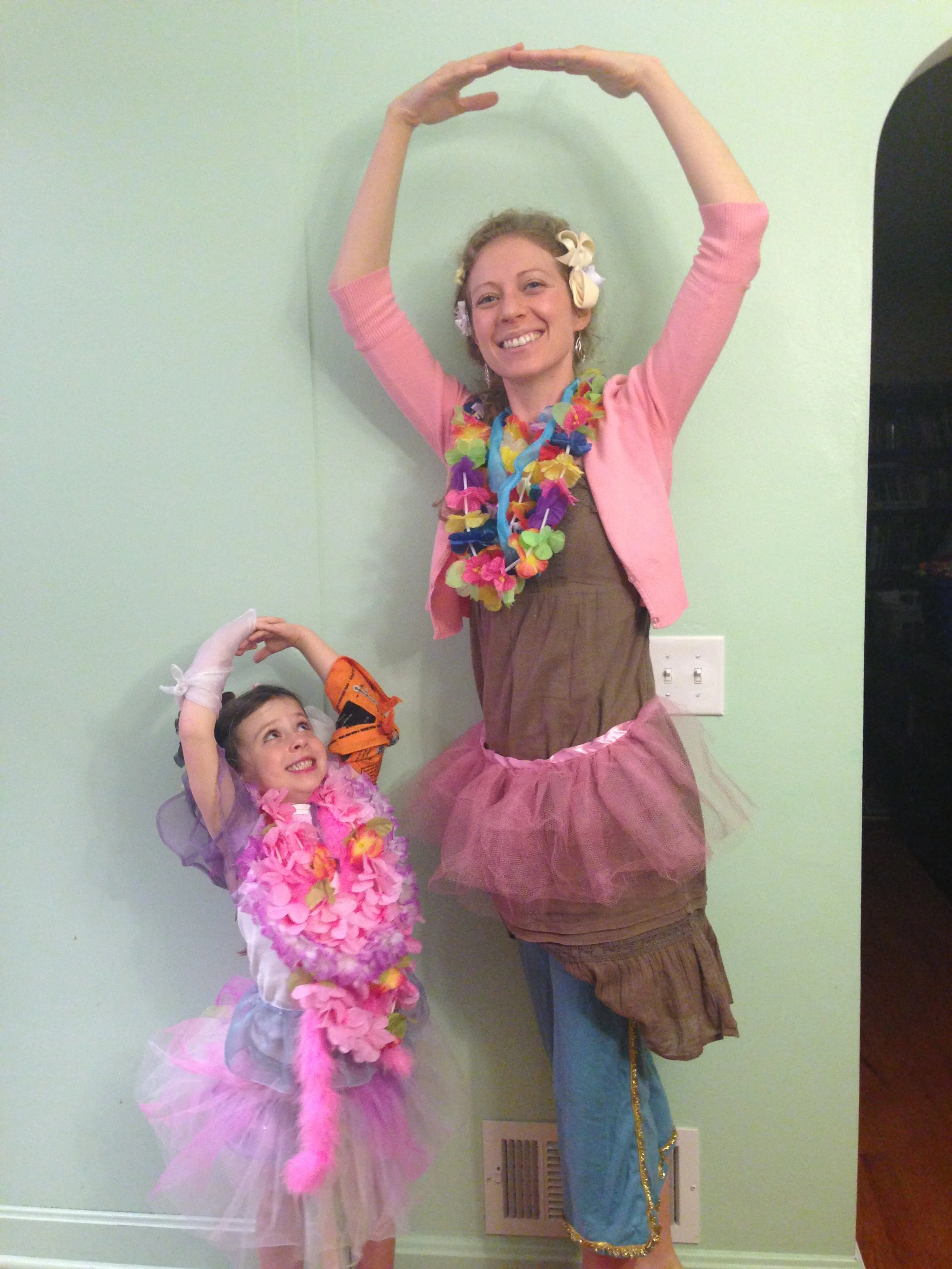Sabbath and Childlikeness
The Three Ps: A Poem, A Pondering, and A Practice
A Poem (A Poetic Reflection, Really):
From GK Chesterton’s Orthodoxy
It might be true that the sun rises regularly because it never gets tired of rising. Its routine might be due, not to a lifelessness, but to a rush of life. The thing I mean can be seen, for instance, in children, when they find some game or joke that they specially enjoy.
A child kicks his legs rhythmically through excess, not absence, of life. Because children have abounding vitality, because they are in spirit fierce and free, therefore they want things repeated and unchanged.
They always say, “Do it again”; and the grown-up person does it again until he is nearly dead. For grown-up people are not strong enough to exult in monotony. But perhaps God is strong enough to exult in monotony.
It is possible that God says every morning, “Do it again” to the sun; and every evening, “Do it again” to the moon. It may not be automatic necessity that makes all daisies alike; it may be that God makes every daisy separately, but has never got tired of making them.
It may be that He has the eternal appetite of infancy; for we have sinned and grown old, and our Father is younger than we.
Mariah “doing it again!” with our niece several years ago. I love how our niece is looking up at her with such adoration. That’s also what it means to be childlike, to see each other with that kind of love and wonder and joy. When we “kidult” well, we help kids mature while remaining connected to their childlikeness, instead of maturation being a severing from our childlikeness.
A Pondering: Sabbath and Childlikeness
I love this quote so much. It resonates deeply with how I am coming to understand what this moment in history is calling forth from us in terms of discipleship, and how those of us who take our faith seriously can rise up to meet this moment of existential crisis. In a word, become more childlike and take ourselves a bit less seriously.
I think Jesus would agree. In Matthew 18 the disciples are caught up in traditional understandings of power, and want to figure out how to make a name for themselves, how to be “greatest” in the kingdom of heaven. Jesus responds by calling over a child, placing it among them, and saying “Truly I tell you, unless you change and become like children you will never enter the kingdom of heaven” (Matthew 18.3).
Wow. Never?!? That’s high stakes. Depending on how high “enter the kingdom of heaven” is on your list of life goals, “How do I become more like a child?” may be your life’s most important question.
Chesterton offers a clue into how to answer that question. He discerns that children and God share something important in common, which many adults have lost: they live in the center of their aliveness, which is the secret to their “excess of life,” and their ability to “exult in monotony.”
Children are always willing to play! They are never far from delight—even in the middle of a meltdown! This is because they are fully present in each moment—present to their bodies, present to the experience; they aren’t trapped in their heads and fretting over what was (past) or what might be (future).
We ask kids what they want to be when they grow up. Why don’t we ask each other how we plan to become more like children as we age. Maybe a better question would be: “How do you plan to be a kidult today?”
Their ability to live in the present moment is an invitation to us adults who have forgotten how to live our lives fully awake to the sheer miracle of existence, and instead live our lives under the burdensome weight of regrets, responsibilities, obligations, worries, busyness, and bills.
Dante opened his Divine Comedy by acknowledging an almost universal experience of adulthood: “Midway through the journey of life / I found myself in a dark wood / and the way had been wholly lost.” 20th century poet TS Eliot echoes Dante with this urgent question: “Where is the Life we have lost in living?”
So many of us know the experience of losing the path of our own lives because we have so few resources to help us process and hold the buckets of pain, loss, disappointment, and grief so many of us feel so much of the time. Instead, we are discipled in distraction, how to numb ourselves to avoid feeling the pain.
The problem is that, if we are unable or unwilling to be present to our pain, we will be unable or unwilling to be present to joy or delight, because we will be unable or unwilling to be present at all. When we cut ourselves off from pain, we cut ourselves off from joy.
In his remarkable collection of essays titled Inciting Joy, the poet-gardener Ross Gay suggests that joy and delight are not the absence of or relief from pain or heartbreak, “but what effloresces from us as we help each other carry our heartbreaks.”
Sabbath invites us to make room for whatever emotions we’re experiencing. It is apprenticeship in living in the present moment, being present to our emotions without casting judgment on them as good or bad. It reminds us to let go of our fear of the future or our regrets about the past. Living in the present moment is the foundation of grateful living, which opens us to joy.
Sabbath also reminds us we cannot control our lives or anyone else’s, and invites us to trust in the goodness of God. That trust is the foundation of our return to childlikeness, to recovering playfulness as adults. I encourage you to consider how you might approach your day more playfully today. What is one choice you can make today to “become more like a child,” and move one step closer to the kingdom.
A Sabbath Practice: Childlike Play
I suspect we have all experienced what Chesterton described as a toddler’s capacity to exult in monotony. I remember not long ago walking with some friends who had a toddler, and I lifted her in the air above my head to make her giggle. I had to “do it again!” the rest of the several-block walk back to the car! And I was delighted to do so (though my shoulders were feeling it after a block or two!).
This Sabbath, consider framing an experience around Chesterton’s invitation to childlike play.
What is something you loved doing as a kid that you haven’t done in ages?
Did you used to search for crawfish in the creek like I did as a kid?
Or did you play Sorry or Life or CandyLand until you couldn’t see straight?
What about skipping rope?
Or drawing pictures with sidewalk chalk?
Or maybe introducing your kids (if you have kids) to your favorite movie from childhood?
What if you joined in with the kids playing on the play set at the park instead of watching from the edges with the other adults?
Maybe try filling the dishwasher after a meal like you were 6 instead of like a wisened Swiss architect—or letting your 6yo do it without commentary or direction or correction?
Or going for a walk in the park and stopping every 11 feet to look at something interesting, curious, or beautiful? Looking through the eyes of newness and wonder instead of focusing on step count or closing your activity ring on your smartwatch.
This Sabbath, seek to be present, truly present, to the people around you, the emotions within you, and the Spirit in your midst. Keep your eyes peeled for the day’s many gifts, and be willing to say to each one, over and over, “Do it again!!

